


What are the Common Playground Structures?
Playgrounds are vital spaces for children's development, offering opportunities for physical activity, social interaction, and creative play. Central to these spaces are playground structures, designed to engage and entertain children while promoting their physical and cognitive abilities. From traditional swings to elaborate climbing frames, playgrounds feature a variety of structures that cater to different ages, interests, and developmental stages. Understanding the types and benefits of these structures can help in creating safe, engaging, and inclusive play environments.
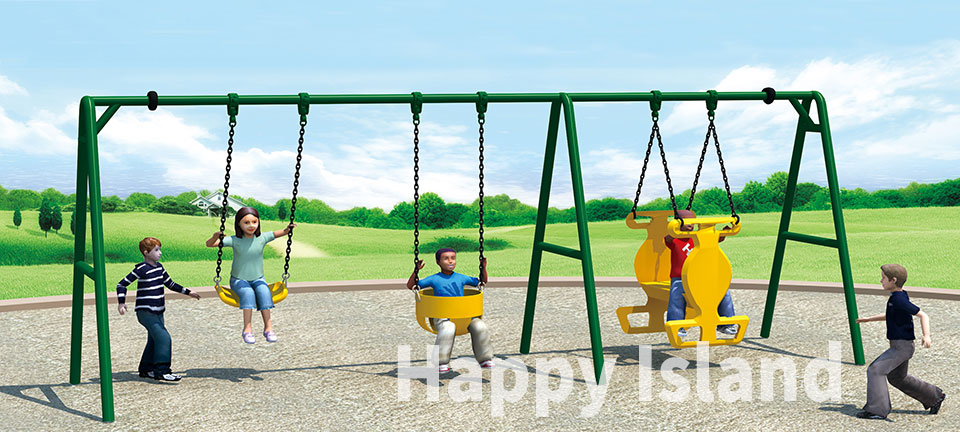
1. Swings
Swings are timeless fixtures in playgrounds, loved by children of all ages. They typically consist of seats suspended by chains or ropes from a sturdy frame. Swings promote balance, coordination, and spatial awareness as children learn to control their movement back and forth. Some playgrounds also feature toddler swings with secure harnesses for younger children, ensuring their safety while they enjoy the swinging motion.
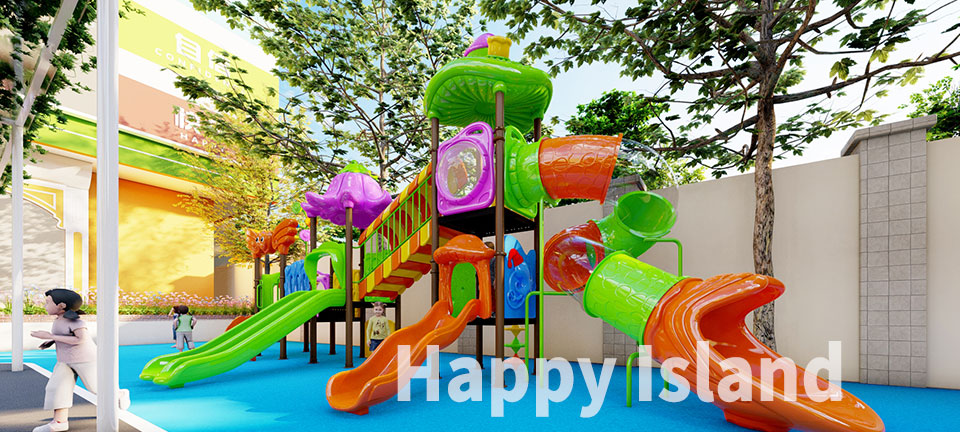
2. Slides
Slides are another staple of playgrounds, offering thrilling descents and encouraging children to climb and explore. Slides vary in height, length, and design, catering to different age groups and skill levels. Toddlers may use shorter and gentler slides, while older children often enjoy faster and more adventurous slides with twists and turns. Slides promote physical activity, spatial reasoning, and risk assessment as children navigate their way to the bottom.
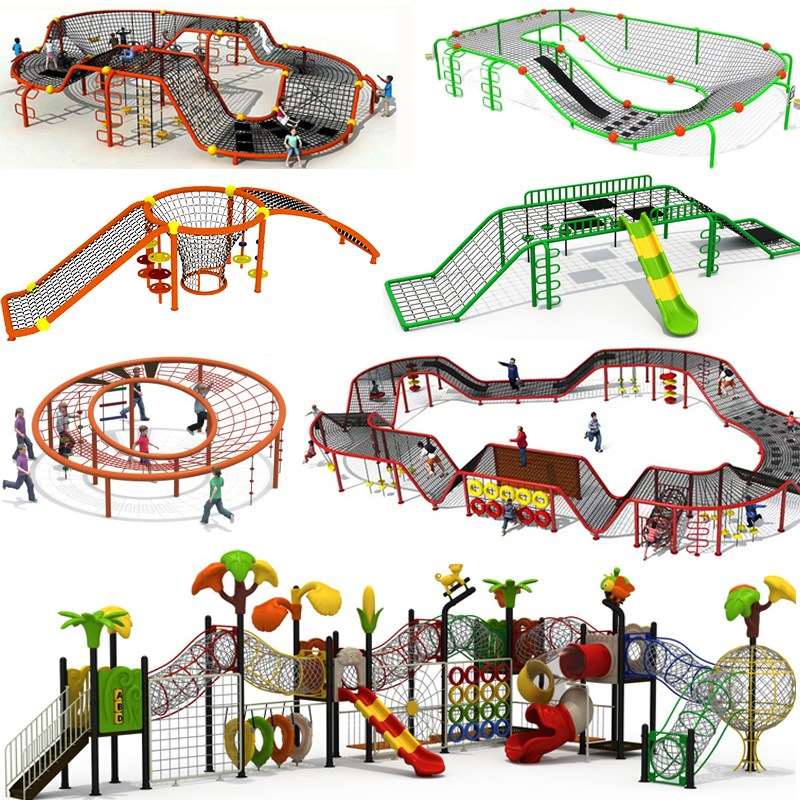
3. Climbing Structures
Climbing structures come in various forms, from simple climbing walls to complex jungle gyms. These structures challenge children's strength, coordination, and problem-solving abilities as they navigate ropes, ladders, and platforms. Climbing structures encourage imaginative play, allowing children to create games and scenarios while developing their motor skills and spatial awareness. Safety features such as soft surfacing and secure handholds ensure that children can climb confidently and safely.
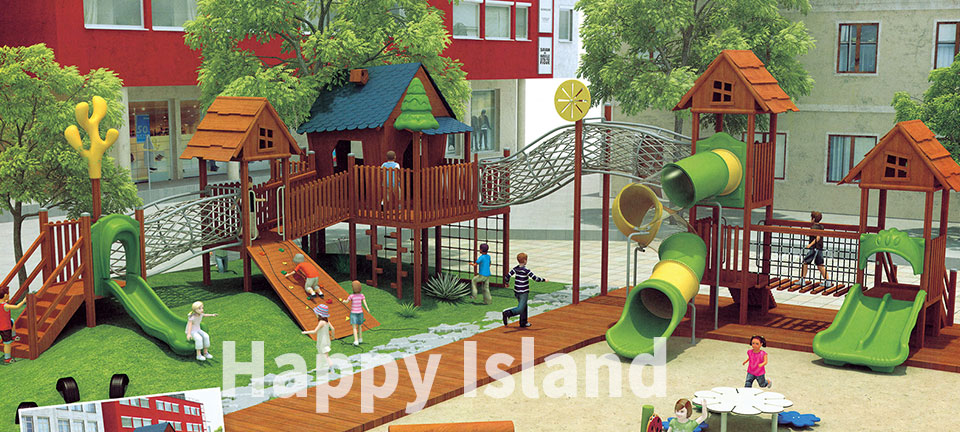
4. Playhouses
Playhouses provide children with imaginative play settings, resembling miniature houses or castles. These structures often include platforms, ramps, and windows, allowing children to role-play, socialize, and engage in creative storytelling. Playhouses promote cognitive development and social skills as children collaborate, negotiate roles, and invent scenarios together. Some playhouses may incorporate slides or climbing elements, adding an extra dimension of physical activity and exploration.
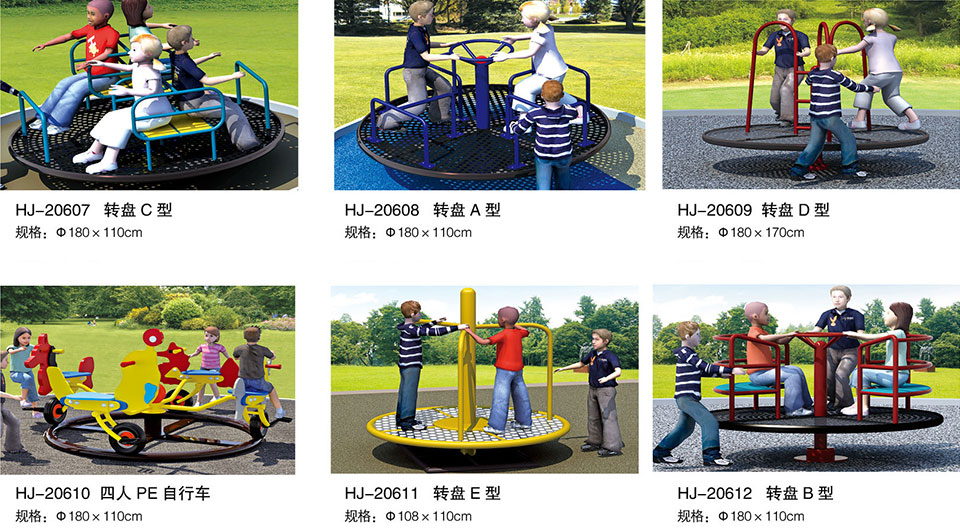
5. Spinner and Merry-Go-Rounds
Spinner and merry-go-round structures offer rotational motion, stimulating children's vestibular system and balance skills. These structures come in various sizes and designs, accommodating multiple children at once. Spinner structures may feature bars or seats for children to hold onto as they spin, while merry-go-rounds typically have central poles for children to push and rotate. These structures encourage cooperative play and social interaction as children work together to create and maintain the spinning motion.
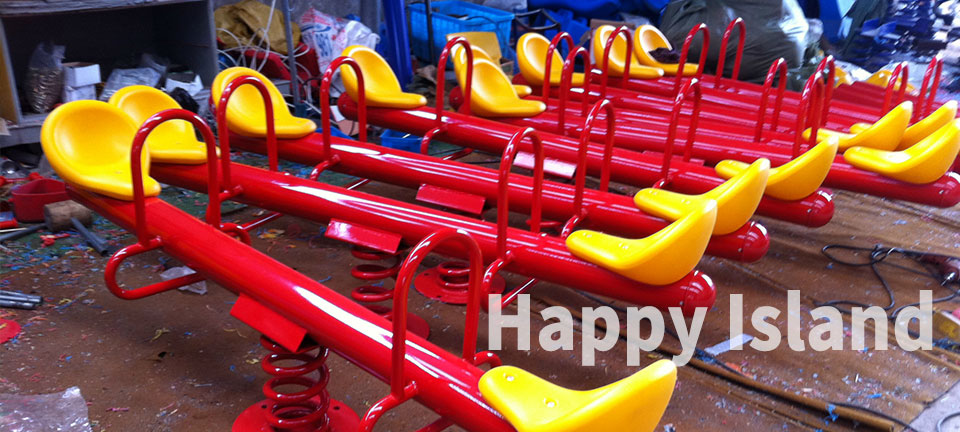
6. Seesaws
Seesaws are classic playground fixtures that promote cooperation and balance skills among children. Typically consisting of a plank balanced in the middle, seesaws require two children to coordinate their movements to enjoy the up-and-down motion. Seesaws encourage social interaction, as children learn to communicate and negotiate with their playmates to achieve balanced play. Modern seesaws often incorporate safety features such as non-slip seats and ground-level installation to prevent injuries and ensure enjoyable play experiences for children of all ages.
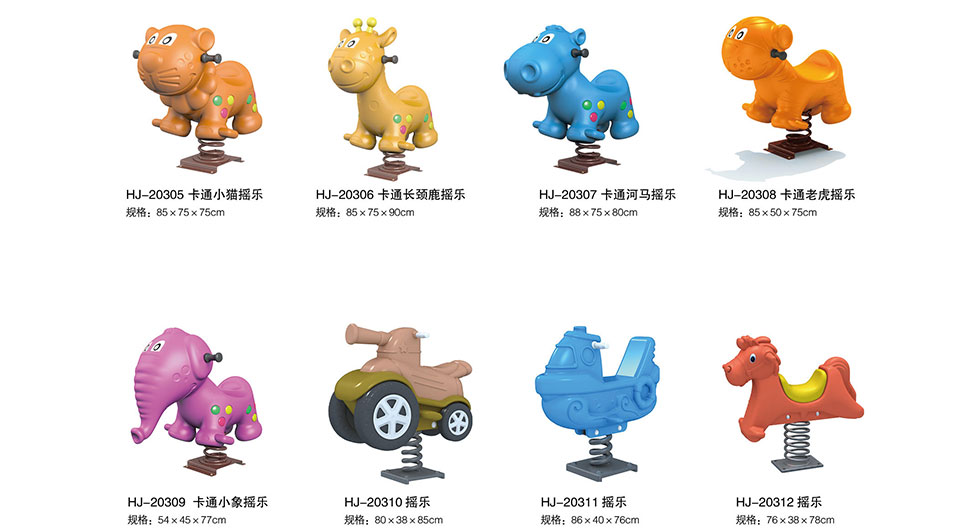
7. Spring Riders
Spring riders are popular among younger children, resembling animal shapes or vehicles mounted on sturdy springs. These structures provide gentle rocking motion, promoting balance, coordination, and imaginative play. Spring riders are often placed in designated areas within playgrounds, allowing toddlers and young children to safely explore and enjoy independent play. Their durable construction and ergonomic design ensure a comfortable and engaging experience for young adventurers.
8. Balance Beams and Stepping Stones
Balance beams and stepping stones offer opportunities for children to practice balance, coordination, and agility. These structures may be incorporated into playgrounds as standalone features or as part of larger obstacle courses. Balance beams challenge children to walk or crawl across narrow beams at varying heights, enhancing their concentration and motor skills. Stepping stones encourage dynamic movement and spatial awareness as children hop, skip, and jump from one stone to another. These structures promote physical fitness and confidence as children navigate their way across the play space.
9. Sandboxes and Water Play
Sandboxes and water play areas provide sensory-rich experiences for children, promoting tactile exploration and creative expression. Sandboxes are often equipped with buckets, shovels, and molds for building sandcastles and shaping landscapes. Water play areas may feature fountains, pumps, and channels for splashing, pouring, and experimenting with water flow. These structures encourage cooperative play and social interaction as children collaborate to build, dig, and manipulate their environments. Sand and water play also foster cognitive development and sensory integration, offering children opportunities to learn about cause and effect, texture, and fluid dynamics.
Conclusion
In conclusion, playground structures are diverse and multifaceted, designed to engage children physically, socially, and cognitively. From classic swings and slides to elaborate climbing structures and imaginative playhouses, each structure contributes to children's development in unique ways. By incorporating a variety of playground structures, designers and educators create inclusive and stimulating play environments where children can learn, explore, and grow through play.
Understanding the benefits of different playground structures helps in planning and designing spaces that support children's holistic development while ensuring safety and accessibility for all. By prioritizing diverse and well-designed playground structures, communities can create vibrant and enriching play spaces that promote children's health, well-being, and joyous exploration.